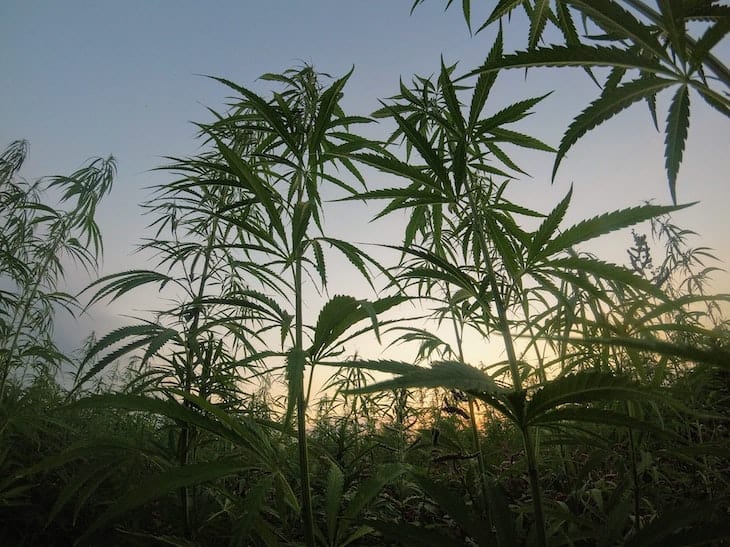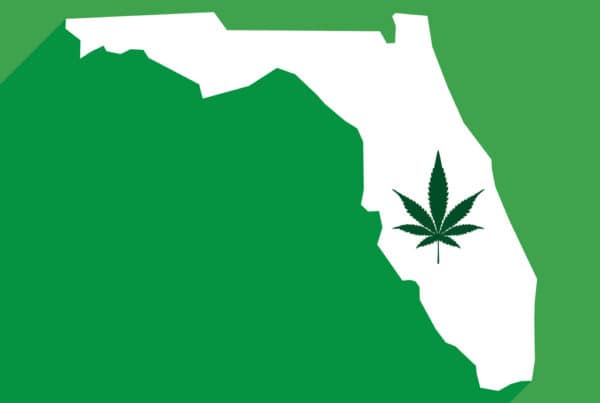TABLE OF CONTENTS
Let's take a look at how to apply for a medical cannabis card in Vermont.
Vermont legalized the use of medical marijuana for qualified patients in May 2004. The Vermont Department of Public Safety provides qualifying patients with medical cannabis cards. Vermont’s medical marijuana program remains limited in terms of dispensary count, but that will change when the 2018 recreational cannabis legalization regulations are in place. Meanwhile, if you’re interested in applying for a medical marijuana card in Vermont, here’s what you should know.
Benefits of a Medical Marijuana Card in Vermont

One of the biggest selling points of obtaining a medical cannabis card in Vermont is the ability to access medical cannabis. If you have one or more of the state’s list of debilitating qualifying conditions, you may be able to receive a medical card that you can use to either buy cannabis from a legal medical dispensary or grow your own. Currently, the medical program is the only way to get cannabis in Vermont. While recreational cannabis is legal, there are no retail locations for recreational cannabis sales.
A medical marijuana card also exempts patients from paying an excise tax on your purchases. More than likely, recreational users will have to pay a certain percentage of excise tax. A medical card may also allow you to legally purchase cannabis from other states that have medical marijuana reciprocity laws.
Qualifying Conditions
Vermont’s Marijuana Registry (VMR) is tasked with distributing medical cannabis cards to qualifying patients. If you have any of the following medical conditions, you may be able to receive a medical marijuana card.
- Cancer
- Crohn’s disease
- Glaucoma (if the disease or the treatment results in severe, persistent, and intractable symptoms)
- HIV/AIDS
- Multiple sclerosis
- Parkinson’s disease
- A condition or its treatment that results in severe, persistent, and intractable symptoms
- Cachexia or wasting syndrome
- Chronic pain
- Severe nausea
- seizures
- Post-traumatic stress disorder (PTSD) (Patient must be in treatment with a licensed mental health care provider and submit a Mental Health Care Provider Form)
Medical Card Application Process in Vermont
If you’re interested in obtaining a medical marijuana card in Vermont, you must download the appropriate forms to register with the Department of Public Safety. Forms include a Registered Patient Application, Health Care Professional Verification Form, Registered Caregiver Application, and Mental Health Care Provider Form. Forms must be paired with the following:
- A valid Vermont driver’s license, state ID, or proof of residency
- A digital, color photograph
- Name, address, date of birth, and phone number of a chosen caregiver.
- Information about a designated dispensary or cultivation location
- A Qualifying Condition Verification Form completed by a healthcare professional
Costs
Medical marijuana patients and caregivers must pay a $50 non-refundable application fee. Patients can switch dispensaries or request a replacement card by completing a Change of Information form and paying a $25 fee. Make checks or money orders out to the Department of Public Safety.
Buying and Growing Medical Marijuana
Medical marijuana patients in Vermont can legally possess up to two ounces of flower at one time. Vermont only has five licensed medical dispensaries. Unfortunately, patients are limited to buying cannabis from only one dispensary at a time. You can choose to change your preferred dispensary once every 30 days but have to pay a $25 fee.
Medical cannabis consumers can possess up to two mature marijuana plants and seven immature plants. If a patient chooses to cultivate or assign a caregiver to cultivate for them, they aren’t allowed to buy cannabis from a dispensary. Cultivation sites must be located in a secured and enclosed area.
Caregiver
If you need someone to buy, grow, or administer cannabis to you, you can assign a caregiver to assist you. Minors may have up to two parent caregivers to provide medical cannabis. In order to be a caregiver, you must be at least 21 years old and provide all the necessary documents and fees to obtain a medical card:
- A Patient Registration Packet (if the patient applying for the card is assigning a caregiver) or a Registered Caregiver Application (if a previously registered patient is assigning a caregiver)
- A valid Vermont’s driver’s license, state ID, or proof of residency
- A criminal background check
- $50 application fee
Out-of-State Patients
Vermont does not have any reciprocity rules allowing patients of other states to buy medical cannabis. If you have a medical cannabis card from another state, you can’t buy cannabis from any of Vermont’s five licensed dispensaries. Only Vermont residents can apply for a medical marijuana card.
Vermont’s medical cannabis program may not be as robust as other medical cannabis programs in the nation, but they are slowly working toward expanding medical cannabis access. Recreational legalization in Vermont is also set to increase cannabis sales and consumption in the Green Mountain State.
Vermont Marijuana College
If you’re interested in learning more about cannabis laws or any other aspect of the developing industry, sign up for Cannabis Training University’s certification programs today.
“
There are over 300,000 jobs in the cannabis industry. CTU trained me for one of them!

Makes $24.50 @ THC +
Learn all aspects of the marijuana industry online at the Vermont Marijuana College, Cannabis Training University. Begin your marijuana job or start your own pot business with online cannabis career training from the best cannabis college.

Fred Hernandez
Fred Hernandez is a highly accomplished and versatile writer, boasting an extensive background in the cannabis industry. With an in-depth understanding of various sectors including cultivators, processors, retailers, and brands, Fred's expertise spans across the entire cannabis landscape. As a prominent contributor to CTU, he consistently delivers insightful articles exploring the latest developments, news, and regulations shaping the cannabis industry. Whether it's delving into the intricacies of cannabis products, cannabis strain reviews, or providing comprehensive analyses of cannabis laws, or sharing expert insights on cannabis cultivation techniques, Fred's wealth of knowledge positions him as an invaluable writer and educator for all cannabis-related subjects.












 Jeff was involved in an accident where he endured a traumatic brain injury. He had a week-long stay in ICU where brain surgeons
Jeff was involved in an accident where he endured a traumatic brain injury. He had a week-long stay in ICU where brain surgeons  100% risk free money back guarantee within 48 hours after purchase if student has not completed any of the courses or exams.
100% risk free money back guarantee within 48 hours after purchase if student has not completed any of the courses or exams.